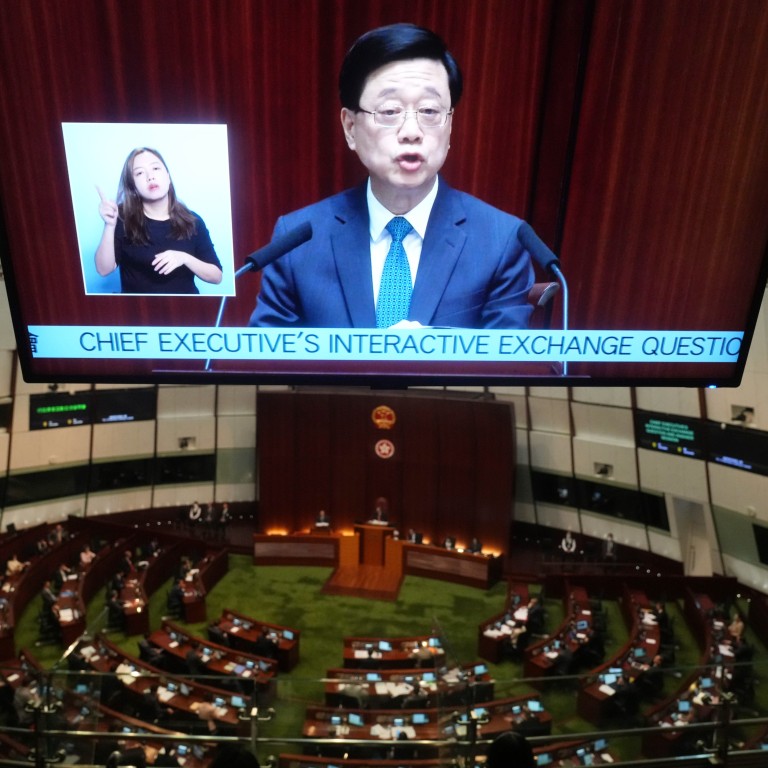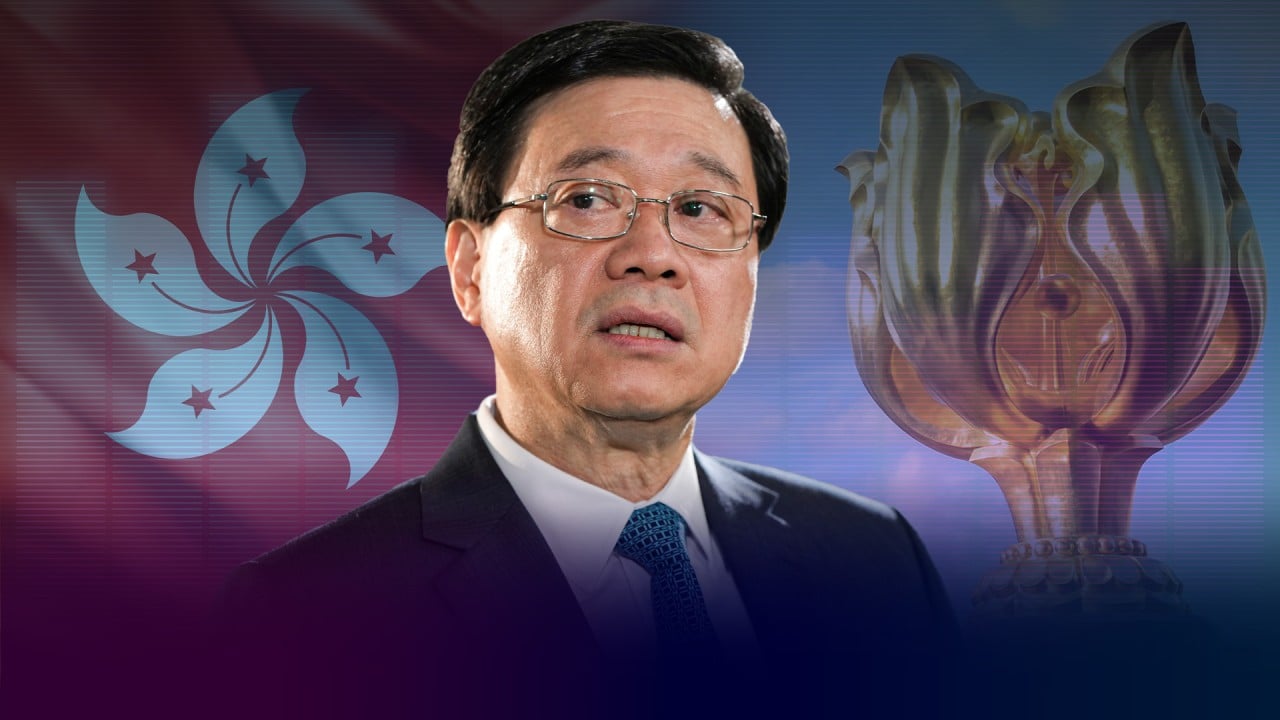
Hong Kong should become training centre for global legal talent to boost status as arbitration hub in Asia-Pacific, John Lee says
- City leader also uses second ‘interactive exchange’ at Legco to promote cultivating more legal talent to speed up nation’s development into ‘law-based’ society
- ‘Hong Kong should take advantage of its existing strengths to develop into a base for training international legal talent for both China and foreign countries,’ he says
Hong Kong should consolidate its status as a regional arbitration hub by establishing itself as a training centre of “international legal talent” for both mainland China and foreign countries, the city’s leader has said.
Floating the proposal during his second “interactive exchange” with the Legislative Council, Lee said the city’s advantages included a strong base of well-educated legal practitioners and a globally recognised common law system.
Why Hong Kong’s reputation as a global dispute resolution centre is on the rise
Lee also asked legislators during the session if they had any suggestions for how Hong Kong could develop into an internationally renowned legal training centre.
“I would like to ask universities in Hong Kong to consider setting up centres specifically for the study of laws in these regions, paving the way for Hong Kong to further tap into the vast market these regions have,” he said.
Legislator and City University law professor Priscilla Leung Mei-fun said she had experience training several mainland judges and considered Hong Kong an ideal location to provide them with international legal perspectives.
The creation of a preparatory office for the International Organisation for Mediation in February would also “no doubt attract more overseas talent to Hong Kong,” she added.
Top Chinese diplomat backs Hong Kong international mediation office
The international body, which is being set up by the mainland and several other states, aims to create an intergovernmental platform that promotes dialogue by capitalising on Hong Kong’s common law heritage and expertise as a dispute resolution centre.
Thursday’s exchange at Legco is the second since Lee shifted away from the traditional question and answer format in May to one where the administration sets the agenda.
The current agenda focused on developing the city’s culture industry, cultivating legal experts and strengthening the government’s crisis response measures.
Hong Kong set to bring in 20,000 workers to help ease labour crunch
However, Federation of Trade Unions lawmaker Kwok Wai-keung also used the exchange to slam authorities for not consulting the labour sector before revealing plans last month to import 20,000 workers to ease manpower shortages.
But Lee on Thursday said the government would protect the interests of local workers and stressed that importing labour from the mainland and overseas was only a short-term solution.


